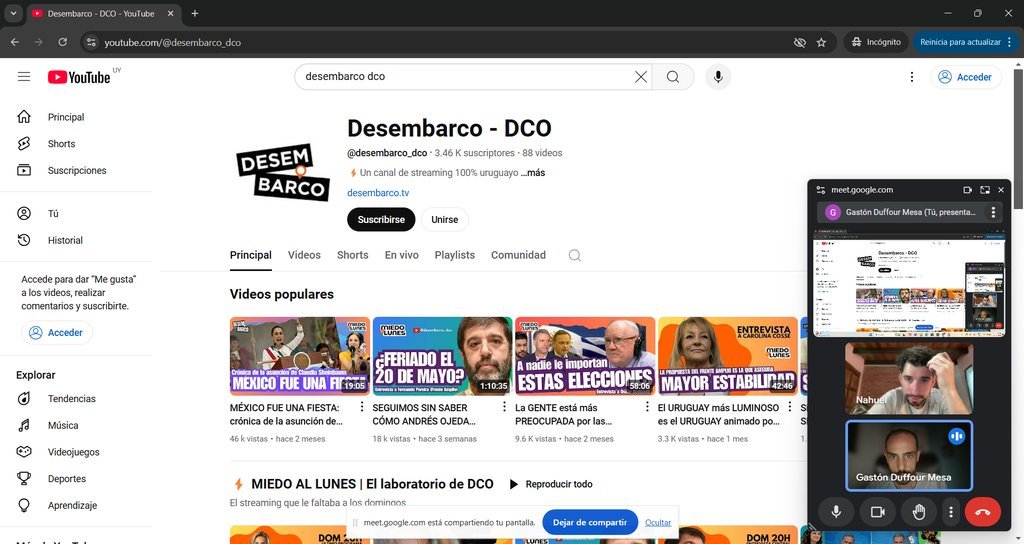desembarco tv
https://www.youtube.com/@desembarco_dco
This profile has been translated automatically.
We apologize for any errors that may have occurred during the translation process.
Last updated date: March 2025
Source: SembraMedia
Location:
Uruguay, Uruguay
Year the organization started publishing:
2024
Languages:
Spanish
Type of coverage:
National
Content
Editorial coverage:
Generalist, focused on multiple topics
Type of content produced by theme:
Science
Politics
Entertainment and culture
Society and human rights
Gender
Feminism
LGBTIQ+
DEIA: Diversity, equity, inclusion and accessibility
Migration
Journalism genres:
Reviews
Interviews and reporting
Opinion
Satire
Journalism coverage types and techniques:
Breaking news
Live coverage of events
Engaged, community-driven or participatory journalism
Collaborative journalism
Tech platforms and other mediums used:
Newsletter
Social media platforms
Podcast
YouTube
Audience and reach
Social media audience
Facebook number of followers:
496
Twitter number of followers:
8,268
Instagram number of followers:
19,651
YouTube number of followers:
3,460
Tiktok number of followers:
10,042
Management and team
Founders
Female:
3
Male:
4
Founders:
Nahuel Sotelo, Diego Lois,Gastón Duffour, Yamandú Lasa, Valentina Lasalvia, Valentina Alvariza, Julieta Rocha, Lu Perez
Directors:
Nahuel Sotelo
Team
Full-time employees:
0
Part-time employees:
0
Freelancers or consultants:
3
Volunteers:
20
Business structure and revenue sources
Organization tax status:
Not yet incorporated / registered
All revenue sources reported by media leaders:
Consultancy services
Google Adsense
Branded content or native advertising
Local advertising sold by own team
YouTube channel income
Memberships
Individual donations
The primary source of revenue reported by media leaders:
Memberships
The second most important revenue source reported:
YouTube channel income
Transparency
Doesn’t publish the names of donors
Doesn’t have an ethics policy / manual
Doesn’t publish an ethics policy / manual
Doesn’t have a data privacy policy
Doesn’t publish a data privacy policy
Doesn’t have a whistleblower policy
Doesn’t publish a whistleblower policy
Doesn’t have a complaints policy
Doesn’t publish a complaints policy
Doesn’t have a sexual harassment or institutional
violence policy
Doesn’t publish a sexual harassment or institutional
violence policy
Is not signed up to a press regulator, trust
initiative, or part of a press association
Does not publish up to date information about its
team